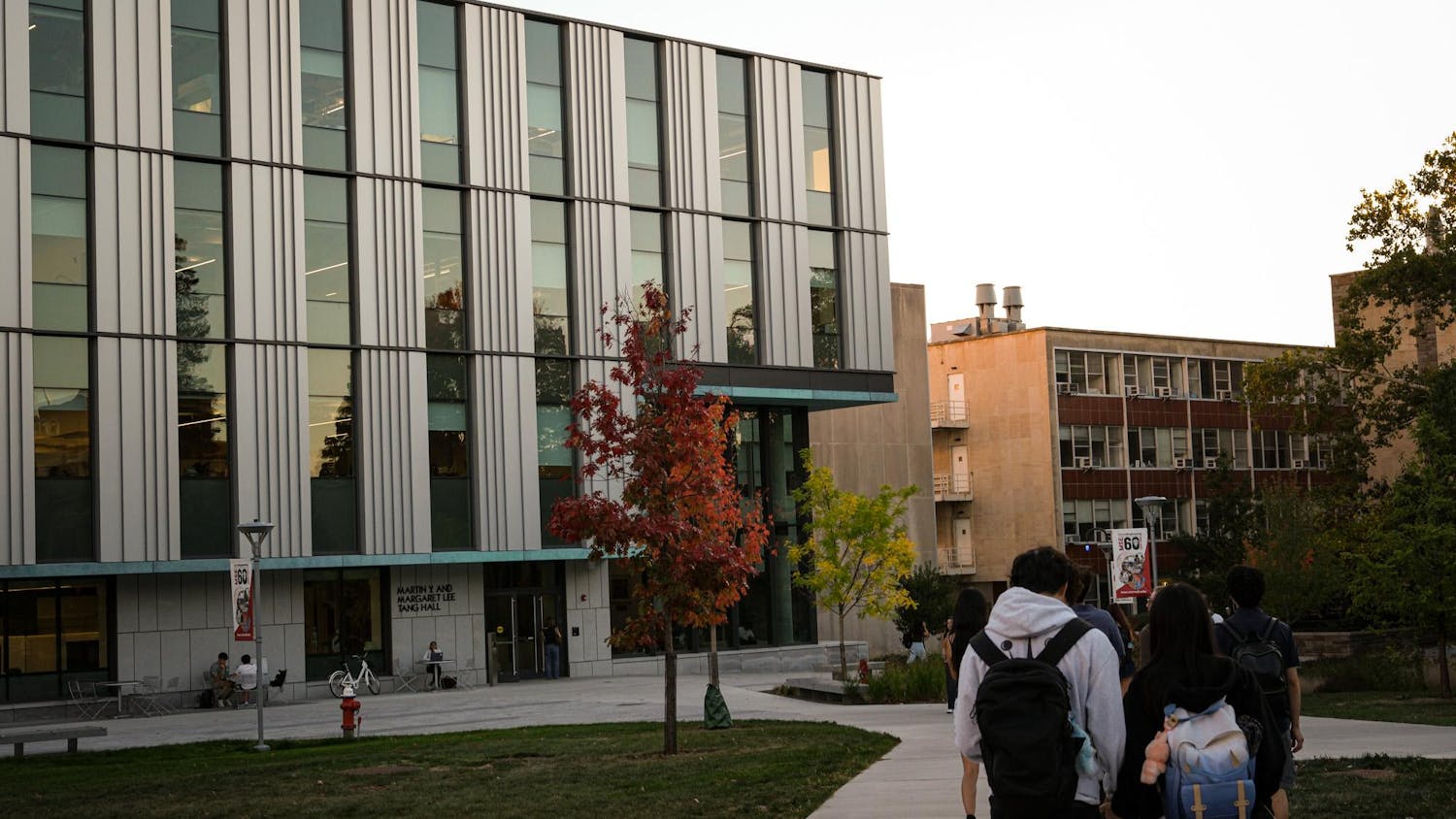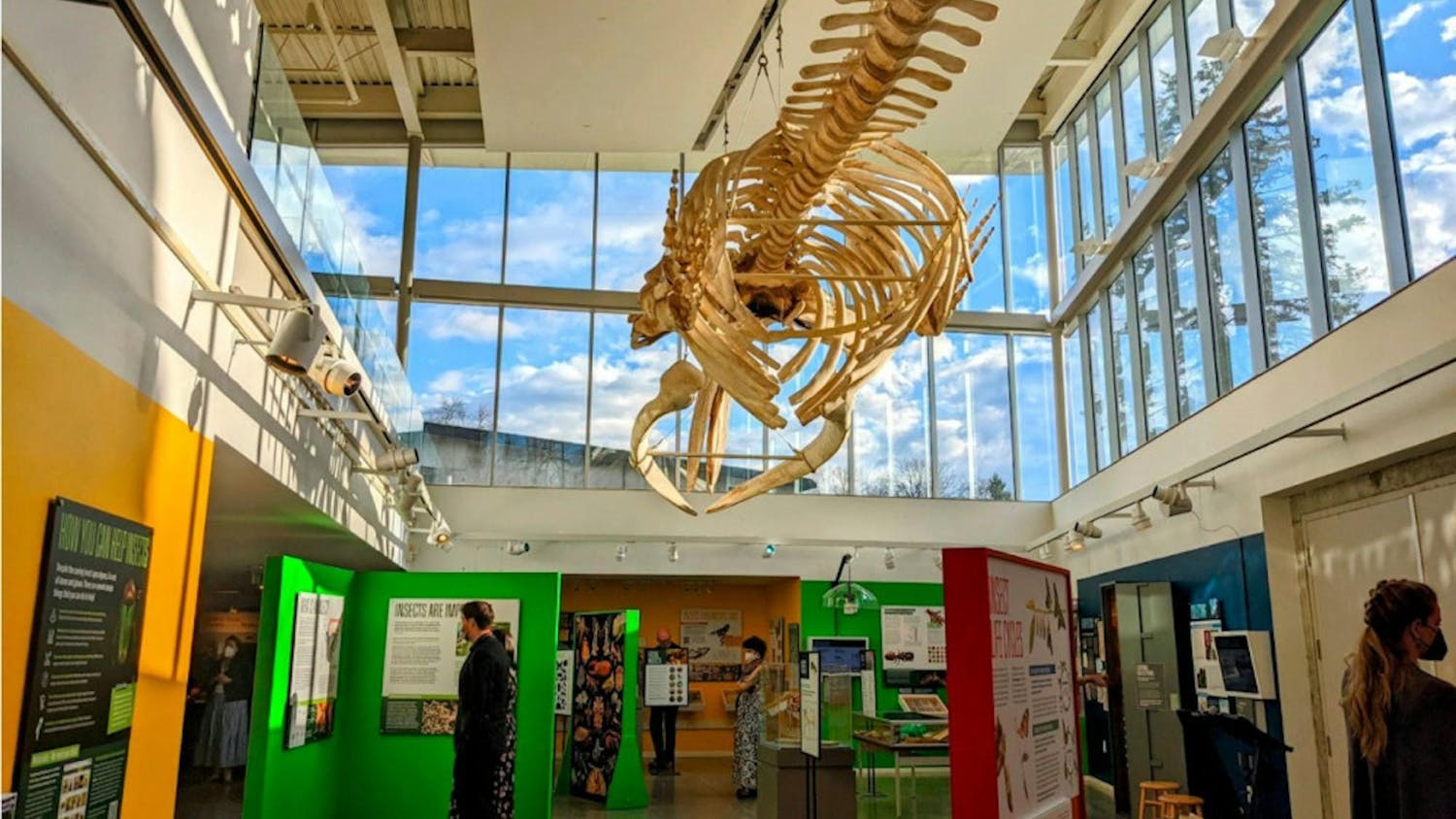Just inside the entrance to the CALS Zone in Mann Library, between the gray trash can and blue recycling bin, sits an unassuming white bin — one of many that can be found across campus.
These bins are part of the Society for Natural Resources Conservation’s TerraCycle initiative. TerraCycle is a private US-based company that helps individuals and organizations recycle items that cannot be recycled through traditional municipal recycling programs, such as plastic packaging and wrappers.
As a student organization at Cornell, SNRC takes part in several recycling programs from TerraCycle, aimed at reducing campus waste and providing non-traditional recycling options for students.
Among various recycling initiatives, SNRC participates in TerraCycle’s paid Zero Waste Boxes, specialized containers for collecting specific types of waste that are then sent to TerraCycle for recycling. TerraCycle repurposes this waste into raw plastic material, which is then reused by other corporations, according to the company’s website.
SNRC’s TerraCycle program accepts a variety of conventionally non-recyclable waste, including plastic wrappers, toothbrushes and cleaning supplies. People can dispose of accepted waste in any of SNRC’s TerraCycle bins across Cornell, including Martha’s Cafe, Noyes Community Recreation Center and Robert Purcell Community Center. Anabel’s Grocery has also partnered with SNRC to obtain a plastic packaging box to manage the waste generated by daily bulk deliveries.
Rania Wanandi ’26 is SNRC’s president and the TerraCycle program coordinator. “We bring this program on campus so that students have a way to dispose of their items without it ending up in the landfill,” Wanandi said. “It’s a great way to change your waste stream. We produce so much waste on the daily basis, and its fate can be changed just because you put it in a different bin.”
On a bi-weekly basis, Wanandi and the other members of SNRC’s TerraCycle team retrieve any waste left in the TerraCycle bins across campus. They organize the different types of waste into the corresponding Zero Waste Boxes stored at SNRC’s headquarters and send them to TerraCycle for recycling.
For Wanandi, who studies environment and sustainability, waste management has always been an area of passion. “I actually got into environmental science because of interest in plastic waste,” she said. “But where I'm from, you can't really do anything with plastic waste. A lot of this filmy plastic, they don't accept it in recycling centers.”
Getting involved with TerraCycle, though, opened a door for Wanandi. “There's a way that I can send this somewhere else and repurpose it so that it just doesn't end up in a landfill,” she said. “That was a really rewarding way to change the way that I treat my waste.”
Wanandi and fellow E&S major Trisha Bhujle ‘26 noticed that they became more mindful of their own everyday waste while managing TerraCycle. “It’s made me realize just how many wrappers I generate all by myself,” Bhujle said. “If you multiply that by the number of students on campus, imagine how much is being generated.”
Based on their own experiences, Bhujle and Wanandi are optimistic about the potential of TerraCycle to change students’ waste habits. “I think that's just a testament of when you pick up something and you care about it, and you try to spread it around, it can really proliferate,” Wanandi said.
Students can get involved in a variety of different ways, including joining SNRC and helping to sort TerraCycle materials, disposing of accepted waste in TerraCycle bins or just spreading awareness about the program to their peers.
Ultimately, the goal is to raise awareness about proper waste disposal. “Even though this is maybe a drop in the ocean, I still think that we are taking action, and we still have that potential to make change,” Wanandi said. “It isn't perfect, and ideally, we would be able to stop things from the source, I think it's a really realistic solution now that we can implement today.”
Tania Hao can be reached at th696@cornell.edu.











